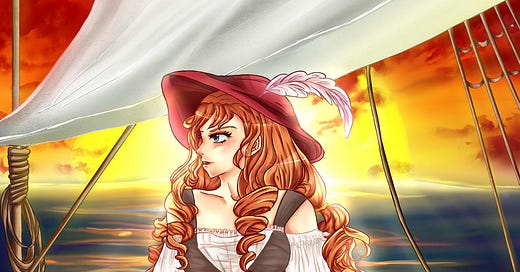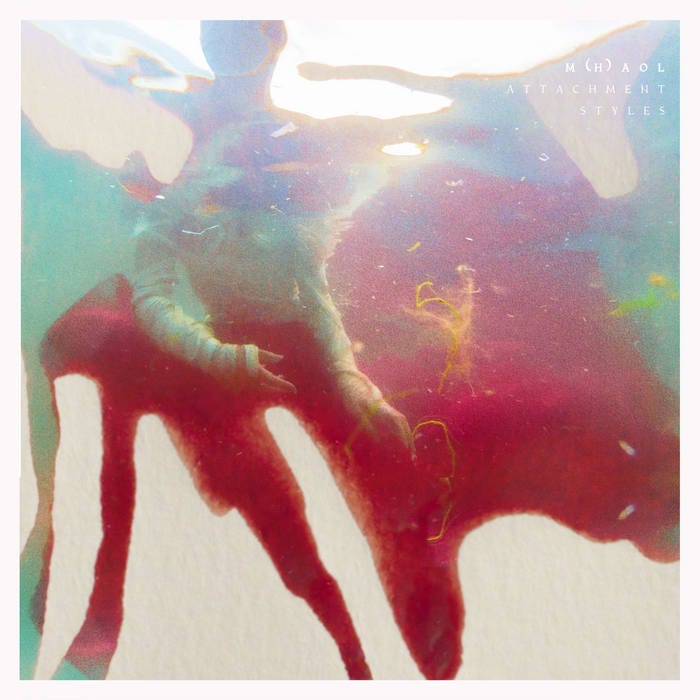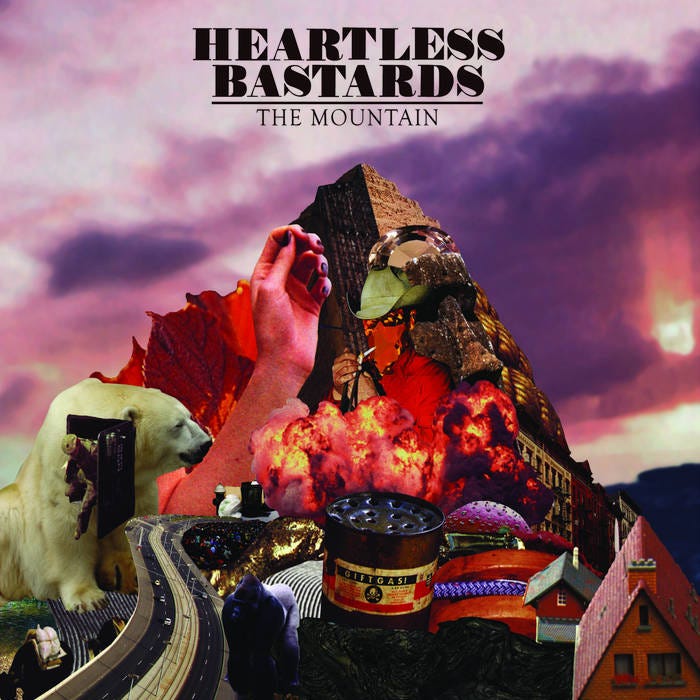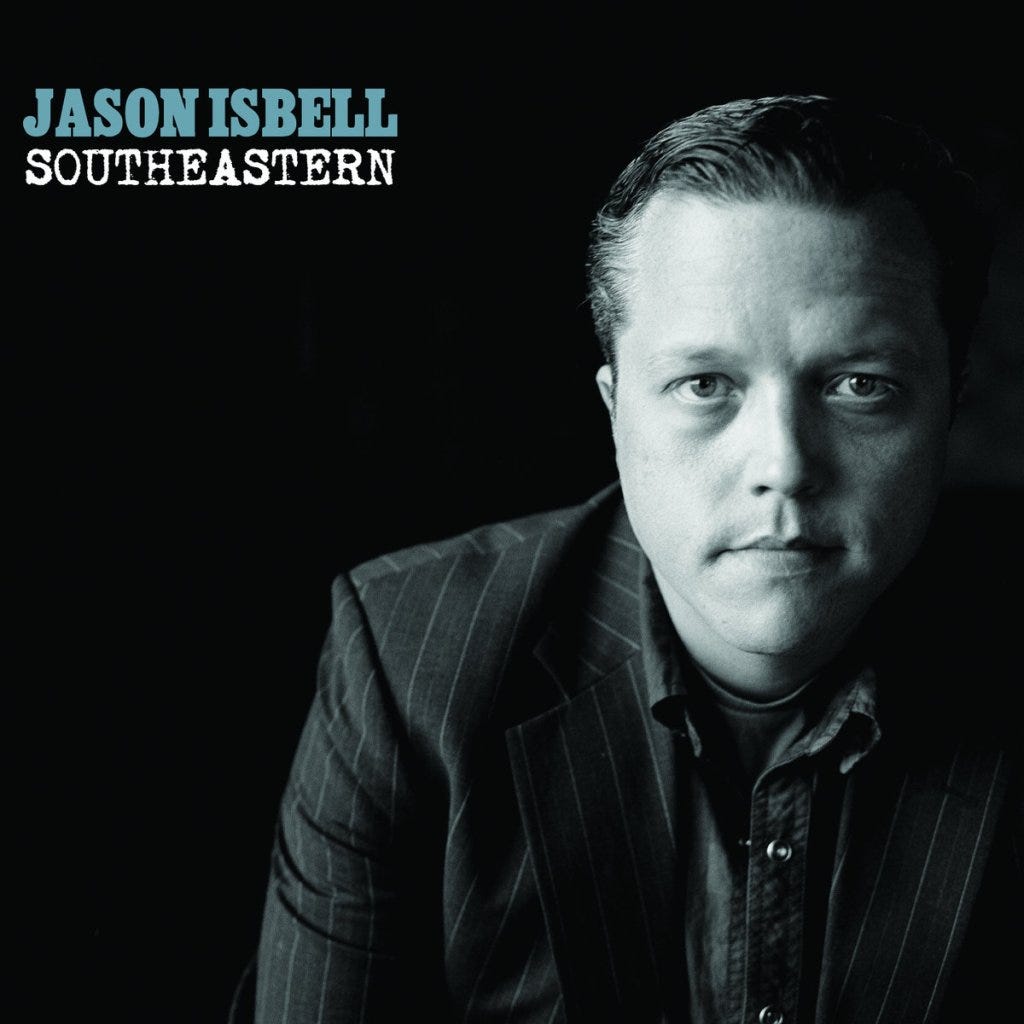AN UNEXPECTED ARC: M(H)AOL, HEARTLESS BASTARDS, AND JASON ISBELL
It has been a few weeks for the 6OGs, as life is taking over the rock and roll lifestyle we all would prefer to be living (or at least the writing we would like to be doing about the rock and roll lifestyle). And with a stockpile of new records and full concert calendar, there will hopefully be more time for us to keep real life at bay in the coming weeks. This week, though, the OGs present what turns out to be an arc of sound: starting within in-your-face punk, transitioning to blues and country-infused hard rock, then moving to a clearer country sound, yet with some clear lyrical and topical throughlines. Real life – relationships specifically – can produce hardship and beauty in many forms. Hope you enjoy these 3.
New album: Attachment Styles by M(h)aol. I miss Priests. The DC punk band that was in its prime in the mid-late 2010s made punk that was infused with political and cultural relevance, both lyrically and sonically. From taking on the medical establishment by asking “You put your finger in other people’s mouths all day/Don’t you, doctor?” to the scourge of gentrification as played out through young people buying upscale furniture they can’t afford to a lyrical ode to the right-wing political shift of the people of Kansas, Priests made music you had to listen to (and that you wanted others to have to listen to, especially if they were the target of the lyrics). Not just because the singer Katie Alice Greer was often screaming or gyrating in a way you couldn’t take your ears (or eyes, when they played live) off of, but because the whole package added up to something that, well, felt like it mattered.
Since Priests disbanded, I’ve been searching for a band that could fill the void, at least in this lane of punk (Sault, for example, is a band that matters, but in a very different way). A number have been close, Big Joanie most recently, but nothing quite landed the same. That is, until my friend Mark turned me on to M(h)aol (pronounced “male”), a Dublin quintet named for a 16th century Irish pirate queen called Grainne Mhaol (featured in the image to this post). And like any good pirate, M(h)aol are here to be in your face, to shift power structures, to matter to (and perhaps strike fear in) all who come in their path.
The album opens with an ominous bass line and pulsing drum beat on the track “Asking for It,” a haunting track about sexual assault and violence that reminds us all that the 1988 movie The Accused, in which Jodie Foster is brutally raped and then made out to have been the cause because of how she was dressed and acting, could have been made last month. The arresting video features interspersed statistics of how terribly regressive our societies remain when it comes to responding to rape and sexual assault, even after #MeToo; perhaps moreso. The track does not necessarily go anywhere surprising, but that’s the core point: we all need to be reminded over and over again, and M(h)aol won’t let you look away.
“Bored of Men” and “No One Ever Talks to Us” maintain the theme and center their own sexuality, their anger, their desire for something different. “No one ever talks to us/Unless they want to fuck/I thought this could be different/But I guess we’re out of luck.” Not a lot of nuance, but a ton of power. “Bisexual Anxiety” is a spoken word refutation of anyone who thinks they understand what gender fluidity means, of expectations heaped upon those who dare to question sexual norms and make different decisions for themselves; one can only hope this track plays in the background at campaign events across the South over the next 18 months.
The standout tracks for me, though, come later, when the lyrics and the music shift, if not topically, then in directness, by moving from the general/political to the personal (though still political). On “Therapy,” singer Roisin Nic Ghearailt snarls at an ex over a pounding drum beat, “You know you really fucked me up/And I don’t think that you care/I should bill you for my therapy/But I don’t want your name on there.” Then on “Cowboy Honey,” the tone and music retreat and become nearly silent, demonstrating that the band can thrive even outside the volume and intensity of the rest of the record. With lyrics like “And you said/All my value rested in my face or between my legs/And that there was no value/In what went on in my head,” they continue to translate the intention and direction even through a different song template.
On one hand, you could say that as a 50 year old straight white cis-male, I am hardly the expected demographic of this record. But when an album matters, it matters. That was the same of Priests, and it is 1000% true of M(h)aol. And in all honesty, given the power structure and patriarchy this album rails against, I am exactly the demographic it needs to reach. (Brad)
Album from an upcoming/recent live show: The Mountain by Heartless Bastards. You could easily argue that the target/subject of most songs by M(h)aol is, at core, a “heartless bastard.” And on “The Mountain” by the band Heartless Bastards, which is principally the project of Cincinnati native/Austin resident Erika Wennerstrom, the target is her former bandmate/lover. As near as we can tell, nothing Wennerstrom’s ex committed rises to the level of the scorn M(h)aol is dishing out, but it is clear her soul was damaged by the end, and the album charts a path through the pain.
“The Mountain” is, of course, hardly unique as a breakup record. But what is lacks in subject matter novelty, it more than makes up for in its depth, its texture, and, well, in how much it rocks in the guise of a punk record while never losing the blues and country core. The title track opens the record, starting with a fuzzy and turned-up guitar riff before settling into the track, letting you know that while there will be core songs on this album, there will also be moments of intensity, of anger, of raw emotion. Which the title track itself delivers: an intense journey, with music that builds until it erupts, and lyrics centered on “taking it down the line” because “when you see the smoke there’s fire.” The opener provides the smoke, and you spend the rest of the record navigating the fire.
The fire is not all rooted in bangers, though. Slower tracks like “Could Be So Happy” fit into the same journey, the moments in which a fire appears to be under control, only to have a gust come in from the west and fan the flames again. On another track with a more restrained pace, “Hold Your Head High,” Wennerstrom starts to turn the page, singing that “things will come round again,” but also realizing that the path will not be a clear one: “I’ve got this fascination with all the wrong ways to go/I get lost even in the places that I know.”
And as she does throughout the album, Wennerstrom uses her voice, which has a unique tone and texture that draws you in and punches you in the face more or less at the same time. It’s layered – tough yet tender, full and deep yet delicate, sweet and tough as nails all at the same time. As if you’re digging in the yard and just when you are sure there’s nothing there but dirt and rocks, you find a hint of something unique and delicate: a root, a perfectly formed crystal, an egg.
The journey ends on the upswing, as the album closes with two hopeful bangers, “Witchy Poo” (a song built around the lyric, “Hold on to what you know” and “The Sway” (a banger with an incredibly catchy riff that tells everyone “You just gotta let on go/And just let go”). Like with M(h)aol, it’s as if you can see the blood on the floor, feel the unsettled emotions, and see the scars on the skin from the fire that’s been navigated, but also never wish you’d gone in the other direction.
Heartless Bastards enjoyed moments of cultural cache in its prime, with references in shows like Friday Night Lights (“The Sway” is also on the FNL Season 2 soundtrack). Come join some OGs to see Heartless Bastards on May 9 at Union Stage in DC. (Brad)
Album being rediscovered (at least 10 years old): Southeastern by Jason Isbell. Seems pretty good to be Jason Isbell these days. He releases critically acclaimed music and sells out concert halls. He continues to produce quality albums in an era when albums matter less – his pandemic-era release Reunions is one of my favorites of the past few years. He’s been sober since 2012, five years after his addictions caused him to be fired from Drive-By Truckers. He has a new album, Weathervanes, due this year, and he’s the subject of a new documentary by Sam Jones (director of the Wilco documentary “I Am Trying to Break Your Heart”) called “Jason Isbell: Running with Our Eyes Closed.” And he’s married to Amanda Shires, a brilliant singer and violinist who released one of my favorite albums of 2022 and plays in Isbell’s band, the 400 Unit.
Isbell joined Drive-By Truckers while touring to support their double album Southern Rock Opera, and was a full band member, writing songs and performing on two of DBT’s best albums, Decoration Day and The Dirty South, as well as the solid next album A Blessing and a Curse. After he left the band, I continued to listen to the Truckers but lost track of Isbell until 2017’s The Nashville Sound, which featured the haunting “If We Were Vampires.”
Going back and listening to Southeastern, I wonder why I ignored this album when it originally came out. My best guess is it coincided with a period in which I was avoiding anything related to alt-country (note to self: go back and listen to the DBT albums between The Big To-Do and American Band). My mistake. This is a beautiful album in which Isbell confronts his addiction with honesty and emotion, and in his lyrics, he acknowledges how he hurt himself and the people in his life.
Album opener and concert staple “Cover Me Up” is an acoustic song about Isbell’s marriage to Shires after his stint in rehab. “Traveling Alone” also features Isbell on guitar and Shires on violin in a meditation on loneliness. “Elephant,” another acoustic number, contemplates substance abuse, disease and mortality. “Flying Over Water” and “Super 8” are both rockers that are reminiscent of Isbell’s time with the Truckers. “Songs That She Sang in the Shower” reflects on a relationship that ended, whereas in “Stockholm” he sings about being away from loved ones. “Live Oak” tells the story of an outlaw, but as a metaphor for Isbell’s life before sobriety. Album closer “Relatively Easy” ends on a hopeful note (“The evenings now are relatively easy/Here with you there’s always/Something to look forward to”).
I’m sure for a lot of people, this isn’t exactly earth-shattering analysis. Southeastern contains some of Isbell’s most enduring songs and it received an overwhelmingly positive critical response when it was released. But it wasn’t on my radar then, and that’s on me. I missed out on a superb collection of songs filled with vivid imagery. Glad that I finally caught up with it. (Brian)







